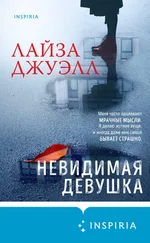And how had she felt during those first few excruciatingly unfolding hours? What had filled her brain, her heart, to replace all those petty concerns? Terror. Despair. Grief. Horror. Agony. Turmoil. Heartbreak. Fear. All those words, all so melodramatic, yet all so insufficient.
“She’ll be at Theo’s,” Paul had said. “Why don’t you give his mum a ring?”
She’d known already that she wouldn’t be at Theo’s. Her daughter’s last words to her had been: “I’ll be back in time for lunch. Is there any of that lasagna left?”
“Enough for one.”
“Don’t let Hanna have it! Or Jake! Promise!”
“I promise.”
And then there’d been the click of the front door, the sudden dip in volume with one person less in the house, a dishwasher to load, a phone call to make, a Lemsip to take upstairs to Paul, who had a cold that had previously seemed like the most irksome thing in her life.
“Paul’s got a cold.”
How many people had she said that to in the preceding day or so? A weary sigh, a roll of the eyes. “Paul’s got a cold.” My burden. My life . Pity me .
But she’d called Theo’s mum anyway.
“No,” said Becky Goodman, “no, I’m really sorry. Theo’s been here all day and we haven’t heard anything from Ellie at all. Let me know if there’s anything I can do . . . ?”
As the afternoon had turned to early evening, after she’d phoned each of Ellie’s friends in turn, after she’d visited the library, who’d let her see their CCTV footage—Ellie had definitely not been to the library that day—after the sun had begun to set and the house plunged into a cool darkness punctuated every few moments by blasts of white light as a silent electrical storm played out overhead, she’d finally given in to the nagging dread that had been growing inside her all day and she’d called the police.
That was the first time she’d hated Paul, that evening, in his dressing gown, barefoot, smelling of bedsheets and snot, sniffing, sniffing, sniffing, then blowing his nose, the terrible gurgle of it in his nostrils, the thickness of his mouth-breathing that sounded like the death throes of a monster to her hypersensitive ears.
“Get dressed,” she snapped. “Please.”
He’d acquiesced, like a browbeaten child, and come downstairs a few minutes later wearing a summer holiday outfit of combat shorts and a bright T-shirt. All wrong. Wrong wrong wrong.
“And blow your nose,” she’d said. “Properly. So there’s nothing left.”
Again, he’d followed her instruction. She’d watched him with disdain, watched him fold the tissue into a ball and stalk pitifully across the kitchen to dispose of it in the bin.
And then the police had arrived.
And then the thing began.
The thing that had never ended.
She occasionally wondered whether if Paul hadn’t had a cold that day, if he’d rushed back from work at her first call, rumpled in smart clothes, full of vim and urgency, if he’d sat upright by her side, his hand clasped around hers, if he hadn’t been mouth-breathing and sniffing and looking a fright, would everything have been different? Would they have made it through? Or would it have been something else that made her hate him?
The police had left at eight thirty. Hanna had appeared at the kitchen door shortly afterward.
“Mum,” she’d said in an apologetic voice, “I’m hungry.”
“Sorry,” said Laurel, glancing across the kitchen at the clock. “Christ, yes, you must be starving.” She pulled herself heavily to her feet, blindly examined the contents of the fridge with her daughter.
“This?” said Hanna, pulling out the Tupperware box with the last portion of lasagna in it.
“No.” She’d snatched it back, too hard. Hanna had blinked at her.
“Why not?”
“Just, no,” she said, softer this time.
She’d made her beans on toast, sat and watched her eat it. Hanna. Her middle child. The difficult one. The tiring one. The one she wouldn’t want to be stranded on a desert island with. And a terrible thought shot through her, so fast she barely registered it.
It should be you missing and Ellie eating beans on toast.
She touched Hanna’s cheek, gently, with the palm of her hand and then left the room.
3
THEN
The first thing that Ellie shouldn’t have done was get a bad grade in maths. If she’d worked harder, been cleverer, if she hadn’t been so tired the day of the test, hadn’t felt so unfocused, hadn’t spent more time yawning than concentrating, if she’d got an A instead of a B+, then none of it would have happened. But going further back, before the bad maths test, if she hadn’t fallen in love with Theo, if instead she’d fallen in love with a boy who was rubbish at maths, a boy who didn’t care about maths or test results, a boy with no ambitions, or better still no boy at all, then she wouldn’t have felt that she needed to be as good as him or better, she’d have been happy with a B+ and she wouldn’t have gone home that evening and begged her mum for a maths tutor.
So, that’s where it was. The first kink in the time line. Right there, at four thirty or thereabouts on a Wednesday afternoon in January.
She’d come home in a temper. She often came home in a temper. She never expected to do it. It just happened. The minute she saw her mum or heard her mum’s voice, she’d just feel irrationally annoyed and then all the stuff she hadn’t been able to say or do all day at school—because at school she was known as a Nice Person and once you had a reputation for being nice you couldn’t mess with it—came spitting out of her.
“My maths teacher is shit,” she said, dropping her bag on the settle in the hallway. “Just so shit. I hate him.” She did not hate him. She hated herself for failing. But she couldn’t say that.
Her mum replied from the kitchen sink, “What’s happened, love?”
“I just told you!” She hadn’t, but that didn’t matter. “My maths teacher is so bad. I’m going to fail my GCSE. I need a tutor. Like, really, really need a tutor.”
She flounced into the kitchen and flopped dramatically into a chair.
“We can’t afford a tutor,” her mum said. “Why don’t you just join the after-school maths club?”
There was the next kink. If she hadn’t been such a spoiled brat, if she hadn’t been expecting her mum to wave a magic wand and solve all her problems for her, if she’d had even the vaguest idea about the reality of her parents’ finances, if she’d cared at all about anything other than herself, the conversation would have ended there. She would have said, OK. I understand. That’s what I’ll do.
But she had not done that. She had pushed and pushed and pushed. She’d offered to pay for it out of her own money. She’d brought up examples of people in her class who were way poorer than them who had private tuition.
“What about asking someone at school?” her mum suggested. “Someone in the sixth form? Someone who’ll do it for a few quid and a slice of cake?”
“What! No way! Oh God, that would be so embarrassing!”
And there it went, slipping away like a slippery thing, another chance to save herself. Gone. And she didn’t even know it.
4
Between the day in May 2005 that Ellie had failed to come home and exactly two minutes ago there had been not one substantial lead regarding her disappearance. Not one.
The last sighting of Ellie had been caught on CCTV on Stroud Green Road at ten forty-three, showing her stopping briefly to check her reflection in a car window (for a while there’d been a theory that she had stopped to look at someone in the car, or to say something to the driver, but they’d traced the car’s owner and proved that he’d been on holiday at the time of Ellie’s disappearance and that his car had been parked there for the duration). And that was that. Her recorded journey had ended there.
Читать дальше
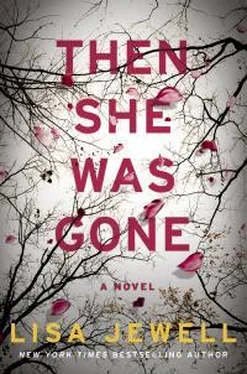
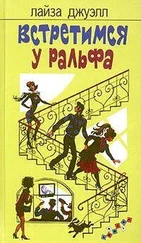


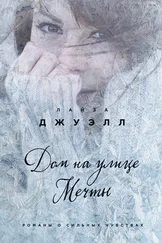
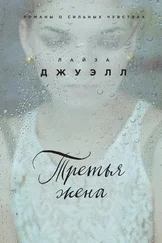
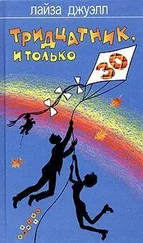
![Лайза Джуэлл - Я наблюдаю за тобой [litres]](/books/402764/lajza-dzhuell-ya-nablyudayu-za-toboj-litres-thumb.webp)
![Лайза Джуэлл - За век до встречи [litres]](/books/408498/lajza-dzhuell-za-vek-do-vstrechi-litres-thumb.webp)


